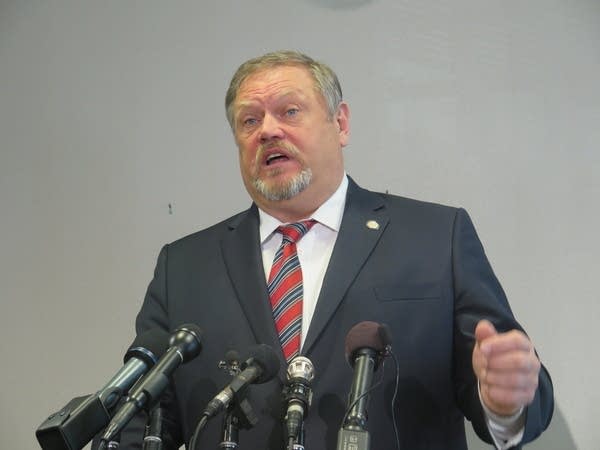Sen. Tom Bakk to leave Capitol after 28 years

Go Deeper.
Create an account or log in to save stories.
Like this?
Thanks for liking this story! We have added it to a list of your favorite stories.
A major shift is coming to the Iron Range legislative delegation with the retirement of longtime state Sen. Tom Bakk.
Bakk, of Cook, announced Thursday that he’ll step down after this term is complete. He’s an independent aligned with the Republican majority but previously led Senate Democrats as majority and minority leader. He is the current chair of the Senate Capital Investment Committee.
Bakk is a former carpenter who has been in the Legislature since 1995, beginning with four terms in the House. He’s been a state senator since 2003. He ran unsuccessfully for governor in 2010.
Bakk created waves after the 2020 election when he and a colleague bolted from the DFL caucus, citing differences with more liberal members. It gave the GOP breathing room instead of a single seat majority. He contemplated running as a Republican in the upcoming election, but opted against it.
Turn Up Your Support
MPR News helps you turn down the noise and build shared understanding. Turn up your support for this public resource and keep trusted journalism accessible to all.
Bakk said in a statement that after 28 years at the Capitol it’s time for him and his wife Laura, who is a legislative staff member, to focus on their eight grandchildren.
“There is still a lot more to be done but it is time for me to pass the torch,” Bakk said. “I’m certain there are new inspiring leaders waiting in the wings.”
Another veteran senator, fellow independent David Tomassoni of Chisholm, is also retiring as he copes with a serious illness. Bakk and Tomassoni entered the Capitol within a couple years of each other and have been close allies since.
Northern Minnesota lawmakers have long had outsized influence in the Legislature due to longevity and cohesion within their delegation.
Bakk is just the latest prominent departure. Dozens of lawmakers are retiring or seeking other offices this year, ensuring heavy turnover. That’s typical in years following the once-per-decade redistricting that leads to new political boundaries.
Dear reader,
Your voice matters. And we want to hear it.
Will you help shape the future of Minnesota Public Radio by taking our short Listener Survey?
It only takes a few minutes, and your input helps us serve you better—whether it’s news, culture, or the conversations that matter most to Minnesotans.



